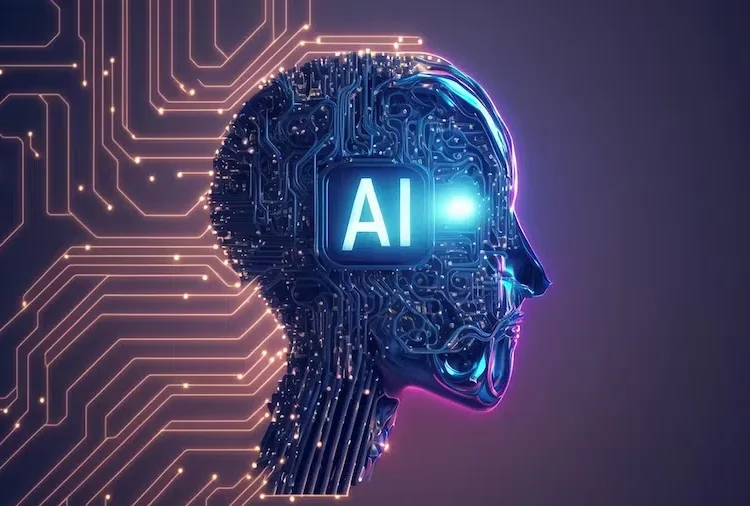An IT infrastructure engineer and versatile SAP techno-functional consultant, Sopuluchukwu Ani, has advocated for preserving creativity in the workplace while embracing artificial intelligence (AI) to enhance productivity.
Ani highlighted that AI adoption offers numerous opportunities but also presents risks. As the nature of work evolves, technology acts as a silent assistant, helping with tasks like filing documents, managing schedules, and providing feedback during meetings.
He emphasised that AI is no longer just a tool but increasingly feels like a co-worker, raising important questions about teamwork and trust. “Can we trust an algorithm to make decisions affecting careers? How do we maintain the human spark—the creativity, humour, and off-topic conversations—that keeps workplaces alive?”
He stated that work does not look like it used to, as technology has become a silent assistant in the background, helping with filing documents, crunching numbers, or managing schedules, just as it shows up in meetings, sending out reminders, tracking progress, and sometimes even giving feedback on how we’re doing.
Artificial intelligence, he said, has emerged from the shadows and into our daily lives. And it doesn’t always feel like a tool anymore. More and more, it feels like a co-worker.
He opined that, while AI can make things faster, easier, and more organised, it also raises deeply human questions. “What happens to teamwork when a machine is part of the team? Can we trust an algorithm to make decisions that affect people’s careers? And how do we make sure the spark that makes a workplace feel alive with the jokes, creativity and the messy human side of work doesn’t get lost along the way?” he queried.
Ani stressed that the shift is bigger than we sometimes admit. According to him, an AI system isn’t just automating a task anymore; it’s deciding which meeting you should attend, which project takes priority, or even who deserves recognition that changes the flow of teamwork, as humans bring empathy, humour, and instinct.
To him, “AI brings logic, precision, and rules. When those worlds collide without balance, friction is almost guaranteed. People may start losing trust if an AI makes a decision that feels unfair, others may stop speaking up, thinking the system already knows best, and because AI learns from past data, it risks carrying forward the very same biases we’ve spent years trying to root out’’
He added that, ‘’Even the culture of a workplace, those small but powerful connections built over coffee breaks, brainstorming sessions, and shared struggles, can quietly erode if too much is left to automation. Work could start to feel efficient but cold, productive but empty. And if people aren’t sure who’s in charge, the manager they report to or the AI that assigns their tasks; confusion and resentment will quickly set in.”
While it doesn’t have to play out that way, he said, AI doesn’t have to be a threat to workplace culture; rather, it can actually enhance it when it’s intentional. The key is remembering who should stay in the driver’s seat. Leaders need to be clear about what AI can and can’t do, and people should feel comfortable questioning its decisions.
“Hence, teams need help understanding not just how to use these systems, but also how to spot their blind spots. Most importantly, we must protect the human side of work with laughter, creativity, and off-topic conversations that spark brilliant ideas; those are not inefficiencies to be replaced but the heartbeat of a workplace.
“This moment is not just a technological shift; it’s a cultural one. AI is already here, and it’s here to stay. The real question is whether we will let it take over or shape it into something that truly works alongside us. If we stay transparent, intentional, and people-first, AI can be more than a productivity booster. It can be a teammate, one that helps us do great things without losing the human spirit that makes work worth showing up for,’’ Ani stated.
Ani pointed out that AI brings logic, precision, and rules, which can conflict with the empathy, humour, and instinct that humans contribute. This collision risks friction, loss of trust, and even workplace culture erosion if not carefully managed.
He warned that if AI decisions feel unfair or if people believe the system knows best, employees may stop speaking up, and the culture built through human connection could quietly fade. Confusion over whether authority rests with managers or AI could also cause resentment.
However, Ani argued that AI doesn’t have to threaten workplace culture. “When used intentionally, with humans in the driver’s seat, AI can enhance both productivity and creativity,” he said. Leaders must be transparent about AI’s capabilities and limitations and foster an environment where questioning AI decisions is encouraged.
He urged workplaces to protect the human side of work—the laughter, creativity, and spontaneous interactions that spark innovation. “This is a cultural shift as much as a technological one. If we stay people-first and intentional, AI can be a teammate that helps us achieve great things without losing the human spirit that makes work meaningful,” Ani stated.





